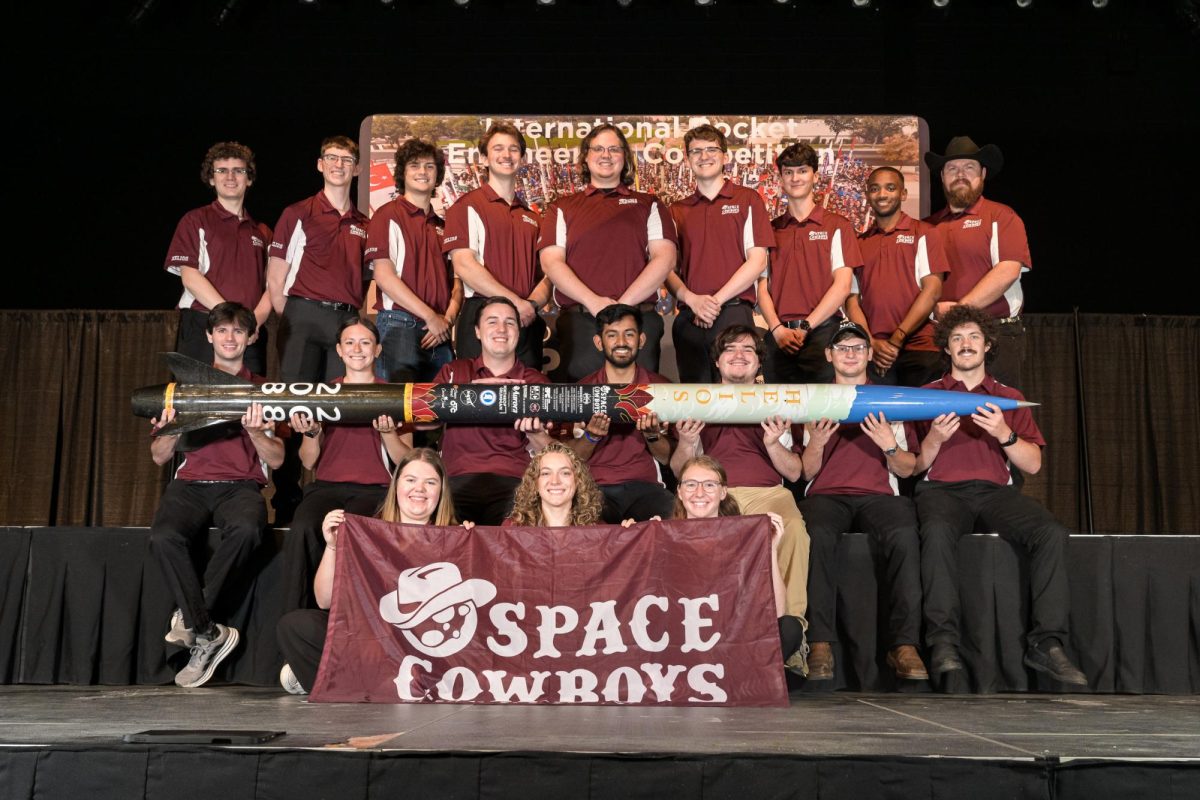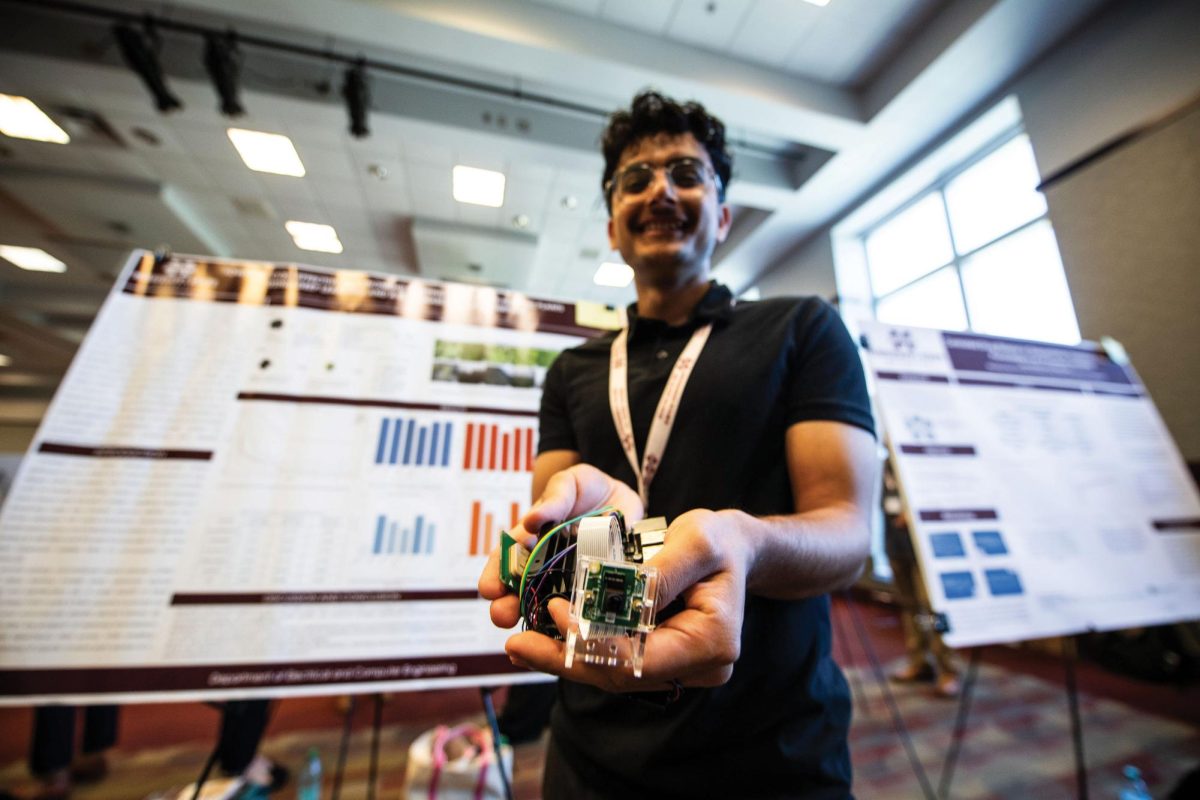Boardtown Organics does not look much like a farm. The owner, Greg Sharp, knows it is not a showplace.
Sharp’s farm looks more like an ill-kempt home site and nothing like the cheerful farm scenes depicted on so many food packages. There’s no red barn, no rolling hills, nothing but a modest, blue house surrounded by somewhat overgrown grass and a small greenhouse in what would normally be the backyard.
Still, this place is certified as an organic farm by the United States Department of Agriculture. Clearly, there is something different about this farm.
Sharp sits atop his red tractor plowing ground for new plantings of cool-weather crops for the fall. He climbs down from his tractor, drenched with sweat, shakes hands and darts off to grab a drink. He pops into the shadow of an old shed and back into the sunlight, carrying a cold can of Coca-Cola, passing a huge pile of full, black garbage bags overflowing with empty soda cans.
“They [sodas] keep me going,” Sharp said. “I have got to have them.”
Sharp cares about the environment, and his overflowing recycling bin and shiny pile of cans serve as testament to that.
Despite outward appearances, the produce, eggs, chickens and soon, pork that will leave this farm are 100-percent organic produce, and the man behind making sure that happens is Sharp. A local businessman who owns convenience stores in Starkville before starting his “side project” as he calls it, Sharp was concerned about the effects that hormones and antibiotics in products from commercial farms would have on his young daughter, Ashley. Sharp said at first his now booming organic farm began as a way to safely feed his family and to let them eat better. An overabundance of produce combined with the Southern gardener’s tradition of sharing with your neighbors, blossomed into a business as neighbors and friends of the Sharp’s clamored for more of his delicious tomatoes, cucumbers and eggs. Now, he sells out of most produce he harvests.
Sharp said he simply started the business with his wife Vickie “because no one around here did it.” Now a regular contributor to the Starkville Community Market, and with a regular customer-base demanding Sharp’s produce, he cannot keep up with demand, and he says that is just fine.
“I’d rather produce quality vegetables than quantity — that’s it,” Sharp said. “Once people try what I grow, they can’t believe the difference. A lot of people are buying it because of the quality.”
Most of Sharp’s quality simply comes from being grown locally and allowed to ripen properly, he said. As a USDA certified organic farm, Sharp’s farm must follow strict practices. Fertilizers and pesticides have to be certified and come from approved sources, and farmers have to maintain strict records of even what is applied to soils when not being actively cultivated, according to the USDA.
Sharp said closer attention has to be paid to an organic crop than to conventionally grown crops, and that in turn, makes for a better product.
“I’ll see these plants every day,” he said. “Organic farmers are more on top of and put more work into their crop.”
Another factor affecting Sharp’s produce is the type of seed he plants. He only uses what is referred to as heirloom varieties of plants. Many farmers use “designer” seed or genetically modified seed that guarantee higher yields from plants and can be sprayed with high-strength pesticides and not suffer from the application. Designer seeds cost two to four times as much as conventional seeds, according to the Center for Food Safety.
Heirloom plants are not the only thing on Sharp’s farm with a heritage. He considers the old-time breeds of chickens and hogs to be far superior to the more modern breeds designed for maximum gain with minimal feed. Sharp raises Gold Star chickens, another farmer-patterned breed, for meat and eggs and just began raising his own pigs.
Sharp gets excited when talking about his pigs.
“Tamworth hogs, from Tamworth, England,” he said proudly. “The nearest breeder was in South Carolina, and I met him in Birmingham to pick them up.”
The little, reddish-brown pigs that are lounging in a small pen are not what most modern hog farmers would raise, nor would this breed even survive in a modern commercial hog-farming operation.
Whereas modern hog farms enclose pigs in huge climate-controlled barns, Sharp’s pigs are free to roam in a grassy pen under the shade of a nearby oak tree. They’re not fed corn like most slaughter hogs are. The result is leaner and tastier meat. Sharp already has a plot of ground set specifically aside for organic collard greens to feed to his pigs.
“These pigs will pass over corn to eat grass,” Sharp said. “But they’ll put on weight just as fast, and I’m not having to pump them full of antibiotics all the time to keep them alive.”
Another upside to Tamworth hogs is their personality, Sharp said. The pigs are extremely friendly and come running to the fence when Sharp sticks his hand out.
“You can’t even get near those farm-raised hogs,” he said. “They’re so stressed.”
Sharp’s chickens are another source of pride for this farmer as he opens the gate of his chicken house. A three-bedroom, two-bath chicken house to be exact; Sharp turned a foreclosed home on the property into a roost for his hens and roosters.
Eggs and chickens are probably the most popular thing Sharp raises, he said. “There’s so much interest, I can’t keep up,” he said.
Sharp keeps a cooler at his Main Street office in downtown Starkville full of chicken quarters, breasts, whole chickens and eggs for his customers to pick up. Many of his customers are Mississippi State faculty, but students are an ever-growing customer base, he said.
“People can just e-mail me or sign up for our e-newsletter and meet me in town to pick up what they ordered. We keep our website up to date with what we have available,” he said.
Although Sharp’s customers are benefiting from his small operation, he said he’s the one that really has the most benefit.
Categories:
Growing Organic
DAVID BRELAND
•
October 4, 2010
0
Donate to The Reflector
Your donation will support the student journalists of Mississippi State University. Your contribution will allow us to purchase equipment and cover our annual website hosting costs.
More to Discover







